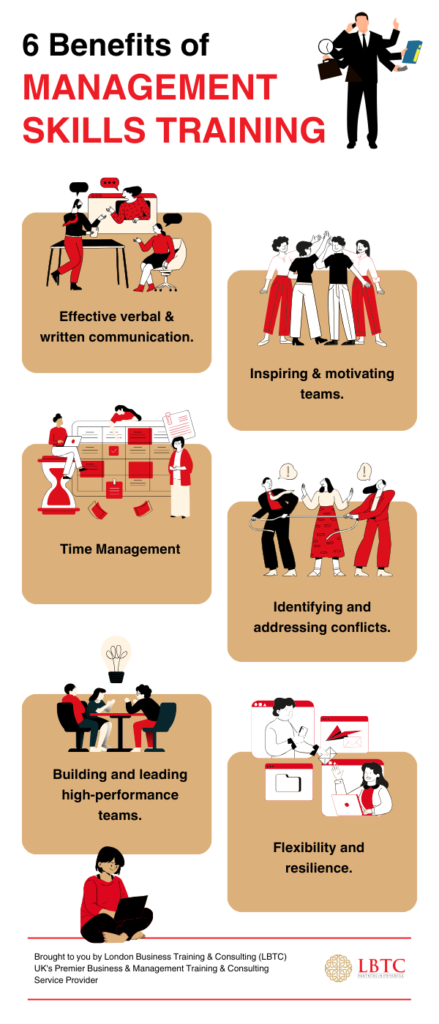
These days, management development is so cliched. Why not use your imagination, add some spice, and develop novel approaches to employee training that aren’t so “meh”?
Management development is often served as the menu item equivalent of risotto. It’s substantial, filling, thoughtfully crafted, easily accessible, and available in various flavours, but it hasn’t altered much over time.
Thousands of management development courses and providers are available online; these often include topics like communication, leadership vs management, management styles, and, if you’re lucky, projects or finances.
It’s time for a revamp of management development.
In addition to the global workforce’s difficulties, we have many new opportunities to help our managers and leaders foster an atmosphere where team members want to work, feel safe enough to take risks and handle appreciation.
Starting with the Millennial generation, later generations have faced several challenges. A pandemic, two wars, a financial collapse, and what’s currently approaching are all examples. We continue to live with COVID-19, and we have not yet encountered the onslaught of mental health issues that lie ahead. The cost of living crisis, which has us managing excessive expenses and tight budgets last seen in the 1980s, is barely getting started.
We are managing the emotional fallout from worldwide events like the conflict in Ukraine. As a result, carrying on in the same manner as before will fail to work.
Let’s examine your personnel now to see what effect these crucial elements may have. And, above all, what will your company do to provide support?
We have compiled this list of new skills based on information from current studies, think tanks, and people who are actively working in the field.
1. Sincere compassion
Indeed, one may master this skill. Individuals and teams are currently struggling, and things will worsen as the cost-of-living problem worsens. If you lack empathy naturally, it’s time to put in more work and attention because your team needs you to feel safe. Empathy comes more readily to a caring and inclusive boss, and they are frequently held in higher esteem for it.
2. Acquiring reflexivity
Since you will need to be coaching your team as things change and evolve in the upcoming season, are you able to quickly acquire new abilities and master old ones to maintain your competitive advantage? Although it’s a vast subject that merits reading up on, the key is to master your development mentality and put your fixed attitude to rest.
3. Building psychological safety
This is so your teams can make mistakes and learn from them to innovate and feel valued. People can tolerate stress at work if the home life is OK and vice versa, but they struggle if they feel threatened in both parts of their lives. Show vulnerability, be kind, give feedback in an adult-to-adult way, and reward positive behaviours.
All this will help you get the most from your team. Have managers use their coaching skills to build confidence and awareness in their teams so they have more headspace to look out for everyone and themselves.
4. Have the ability to oversee remote and hybrid teams.
This entails acting on it as though it were ingrained in your managers’ genetics, not only realising the differences in dynamics and, consequently, requirements. Managers will be more successful if they prioritise trust-building, communication, and engagement over tasks and business. This will lead to higher-performing teams and advocacy.
5. Gain knowledge about finance and other “must-have” abilities.
You may argue that additional abilities like digital, critical thinking, and curiosity should be on this list; generally speaking, we agree. However, given the issues we may face in the upcoming year, we have narrowed it down to the “must haves” that will assist your managers in supporting both their teams and themselves.
Since financial literacy is so evident, it is the one additional skill I toyed with adding to this list. However, when considering more specialised talents in a given context, we concluded that acquiring agility would include this.
Final word
In a world where “management training” often feels uninspiring and repetitive, it’s time for a change. The challenges of the modern workforce demand a fresh approach to management development. We’re facing unique obstacles, from global crises to economic struggles, and the status quo won’t cut it.
As organisations navigate these turbulent waters, it’s essential to reevaluate the skills and qualities our managers and leaders need to cultivate. There will need to be more than the vanilla management training of yesteryears. Instead, we must focus on nurturing a workplace where employees feel valued, safe to take risks, and motivated to excel. So, it’s time to leave the “vanilla” behind and embrace management training that’s both flavorful and effective. By equipping our managers with these vital skills, we can empower them to lead with empathy, agility, and the ability to navigate complex challenges. It’s not just about surviving; it’s about thriving in the ever-evolving world of management.


Leave a Reply